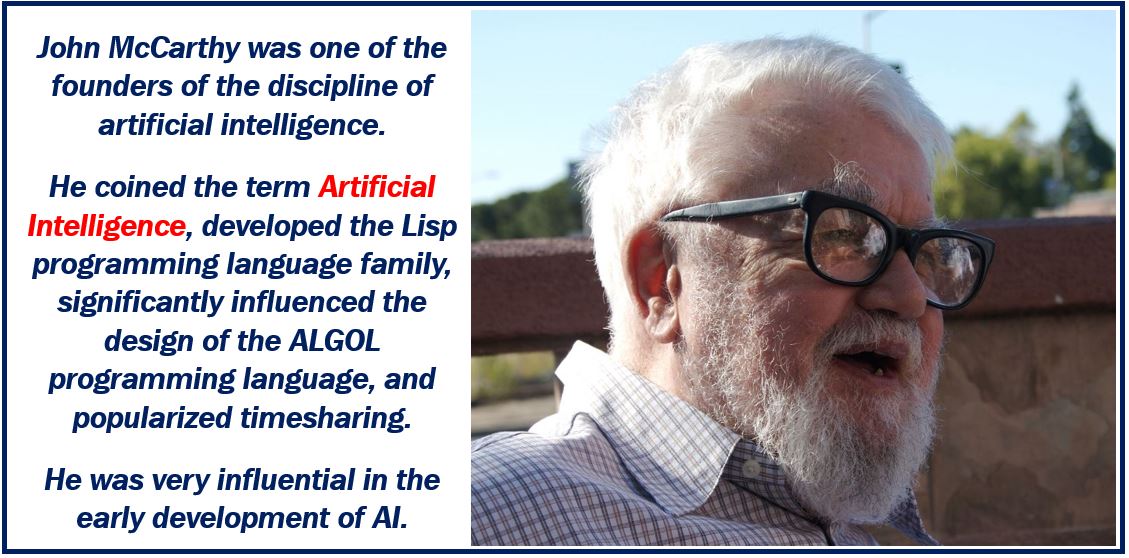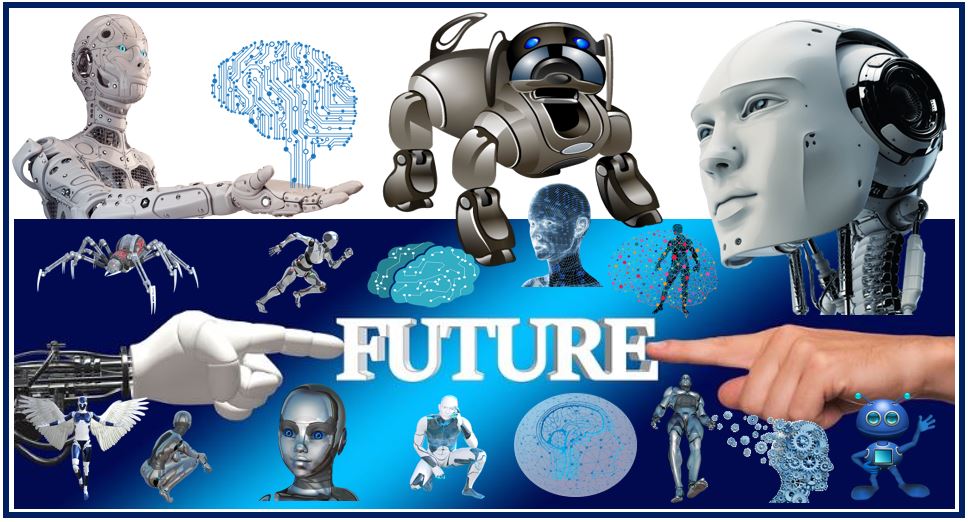
AI stands for Artificial Intelligence. Over the past ten years, AI has been playing a steadily expanding role in the world of business and also in our personal lives. The term ‘AI’ refers to software technologies we use to make computers, robots, and other smart devices think and act like human beings.
Artificial intelligence courses are a good place to start to help you understand exactly how and why people can create robots that will think like humans.
Some AI specialists insist that we should only refer to something as AI if it performs at least as well as a human. Performance means speed, capacity, and computational accuracy in this context.
Others, however, say that artificial intelligence may refer to anything that can make computers and other devices behave more intelligently.
IBM, which co-developed an Artificial Intelligence Course with Simplilearn Solutions, has the following definition of AI:
“By AI we mean anything that makes machines act more intelligently.”
Etymology of artificial intelligence

Etymology is the study of the origin of words and how their meanings have evolved over time.
According to The Phrase Finder, the term first appeared in the English language with its modern meaning in 1955. Four authors of a proposal for a seminar study that was to be held at Dartmouth College, Hanover, New Hampshire, United States, wrote:
“We propose that a 2 month, 10 man study of artificial intelligence be carried out during the summer of 1956 at Dartmouth College..”
The four authors were Claude Shannon, John McCarthy, Nathaniel Rochester, and Marvin Minsky. Most sources just quote John McCarthy as the person who coined the term.
Video – What is Artificial Intelligence?
This Simplilearn video is an introduction to the world of AI. It gives you a short glimpse about AI history and also includes an explanation of some different types of artificial intelligence.
AI Master’s Programs
Demand for AI engineers is extremely high worldwide and is expected to continue growing for decades to come. According to the New York Times, there are fewer than ten thousand qualified AI professionals in the world. However, there are considerably more than 10,000 top AI job vacancies.
In their quest to increase the number of qualified people, government departments, universities and other academic centers are today offering AI Master’s Programs. Simplilearn Solutions has a Master’s Program that it co-developed with IBM, a multinational information technology company based in Armonk, New York.
In this program, course-participants master Machine Learning, Deep Learning, and the programming languages needed to excel in artificial intelligence.
Machine learning is an AI application that gives ‘smart’ devices the ability to learn and improve on their own – without human input. They learn and improve from experience, and can subsequently carry out new tasks, even though they have not been programmed explicitly for those tasks.
To graduate, you need to complete six courses:
- Course One: Introduction to Artificial Intelligence
- Course Two: Data Science with Python
- Course Three: Machine Learning
- Course Four: Deep Learning Fundamentals
- Course Five: Deep Learning with TensorFlow
- Course Six: AI Capstone Project
- Master’s Certificate
AI covers several different fields of study such as mathematics, computer science, neuroscience, linguistics, and psychology. It also involves philosophy. Researchers say that one day we will have a General Artificial Intelligence. This general AI will be able to solve multiple problems rather than addressing just one.
What about the future of AI?

Most of us think about the future of AI with a combination of excitement and apprehension. We know that it will enhance our quality of life in many ways.
For people with disabilities, for example, having a robot to help with mobility, cleaning the house, cooking, and even companionship will be wonderful.
When driverless cars dominate our roads, the number of injuries and fatalities from vehicle accidents will fall dramatically. Traffic jams will be something children today or their children will read about in history books.
Some sociologists and eminent scientists, however, worry about what AI might be capable of one day. When Prof. Stephen Hawking was alive, he worried about what would happen when AI became more intelligent and sophisticated than humans. Bill Gates and Elon Musk have expressed similar concerns.
Prof. Hawking once said:
“It (AI) would take off on its own, and re-design itself at an ever-increasing rate. Humans, who are limited by slow biological evolution, couldn’t compete, and would be superseded.”
The world’s top AI experts need to get together and create an ethical framework to make sure that the smart machines that we create never pose a threat. Perhaps our eminent economists, sociologists, ethicists, health care professonals, and even philosophers should also join in the discussions.

